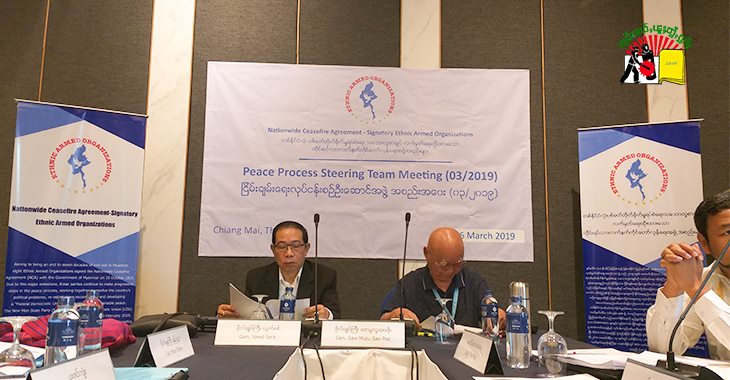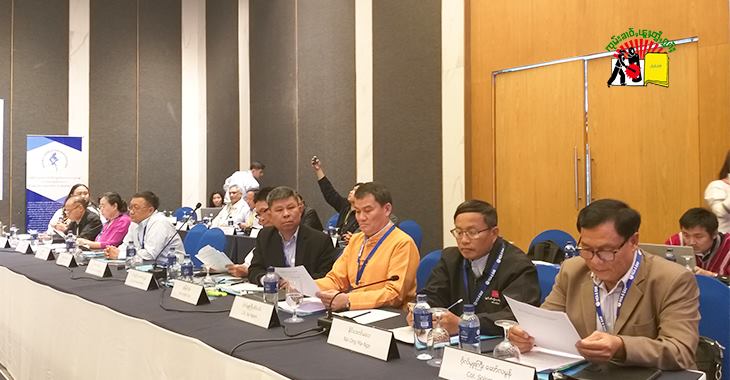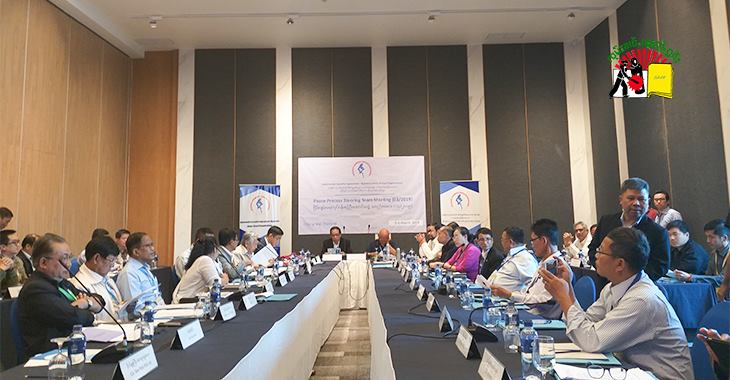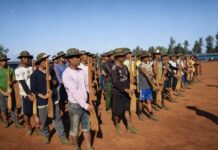An RCSS spokesperson speaks to SHAN on a special meeting of the Peace Process Steering Team.

The Peace Process Steering Team (PPST), formed with representatives of all the ethnic armed organizations signatory to Burma’s Nationwide Ceasefire Agreement (NCA) held a special meeting in Chiang Mai, Thailand from March 5-6.
No official meetings of the PPST have been held since October of last year, with the exception of an informal meeting in Naypyidaw on February 12.
Before it was held, SHAN spoke with Restoration Council of Shan State’s (RCSS) Secretary (2) Col Sai Nguen about this week’s meeting, which the RCSS, as an NCA signatory, attended.
What issues will RCSS discuss in the PPST meeting?
We are going to discuss three issues. First, how to reform the PPST structure. Second, how to overcome the deadlocked issues in peace process. Third, how to cooperate with non NCA-[signatory] EAOs [ethnic armed organizations] in the peace process.
What we understand is that the PPST is not an alliance group. We are not operating under “one order.” It is just a focal point for NCA-signatory EAOs. We will work together on things we agree on and cooperate and negotiate over things we don’t agree on. It doesn’t work to make decisions by voting [in the PPST]—therefore the PPST should not be a decision-making body. We should operate through negotiations. To move smoothly, PPST should reform its structure.
Everybody knows that there are three deadlocked issues in peace process. The first one is called the “package deal” of non-secession and self-determination. The second one is the issue of “one army.” The third one is the conclusion of the peace process in 2020. Regarding these issues, we need common ground, so we are going to discuss these issues in this meeting.
The issue of how to cooperate with non NCA-[signatory] EAOs in the peace process is also important. We have to discuss it. On the other hand, non NCA-[signatory] EAOs are holding discussions with the [government’s] peace commission in informal meetings. I think “all-inclusive participation” is a step closer.

Some EAO leaders have said that the peace process hasn’t move forward because the Karen National Union [KNU] and the RCSS decided to temporarily suspend participation in official peace negotiation meetings. They’ve also suggested that the government favors KNU and RCSS at the expense of other EAOs. What are your comments on this?
That’s their own idea. They can have different opinions and they have a right to disagree. For RCSS, we temporarily stopped participating in official meetings to ensure we would get better results. If we rushed to push the peace process forward, it would be difficult to get a good outcome…. We are not blocking the peace process. We are trying our best to make sure the “deviated” peace process moves back on the right path. Saying that the government is favoring one organization or another is just a misunderstanding.
We have heard that the PPST will invite other EAOs to attend this special meeting as observers. Is this true?
I don’t know. It is not so unusual for EAOs to be invited as observers in a meeting. It’s normal. It’s better if there is transparency.

Is there anything else you’d like to add?
The peace process is a long journey. To walk on this journey, we have to prepare as much as possible. Therefore, we need patience and preparation to multitask. Another important thing is that we need strong unity among our EAOs. In this situation, I want to say that we must be brave enough to make reforms.
Thank you for your time.
This interview has been edited lightly for clarity.











Leave a Comments